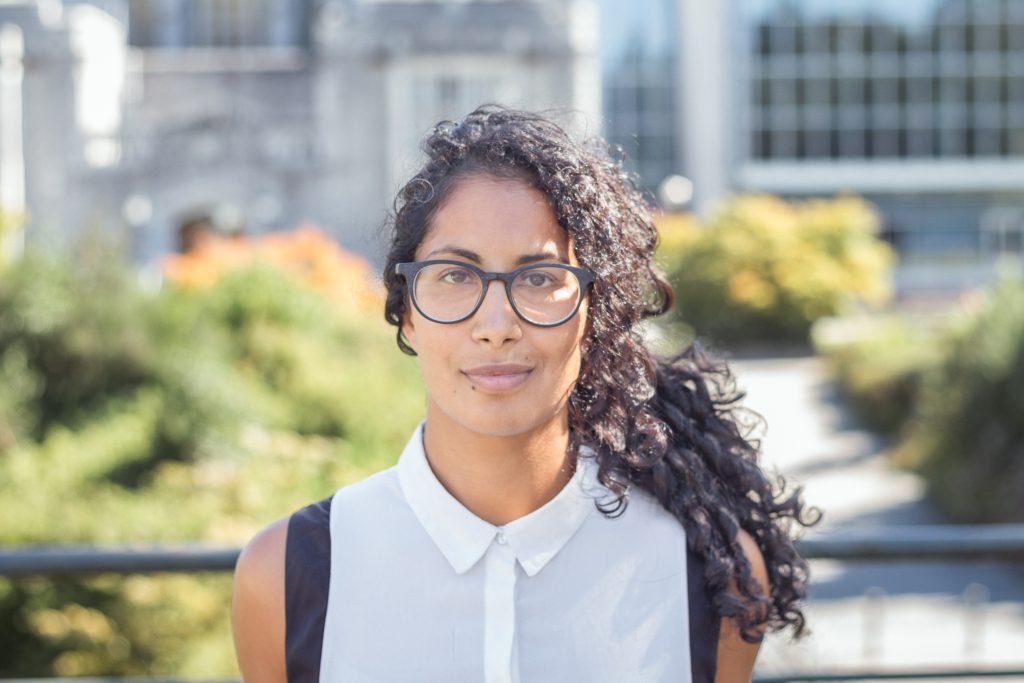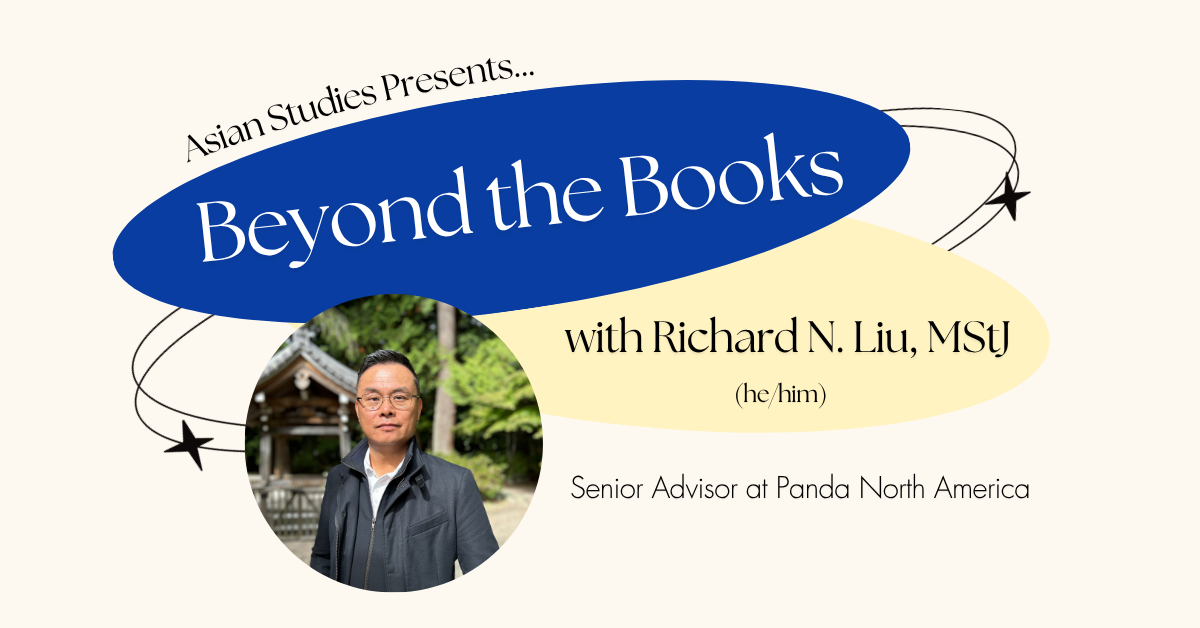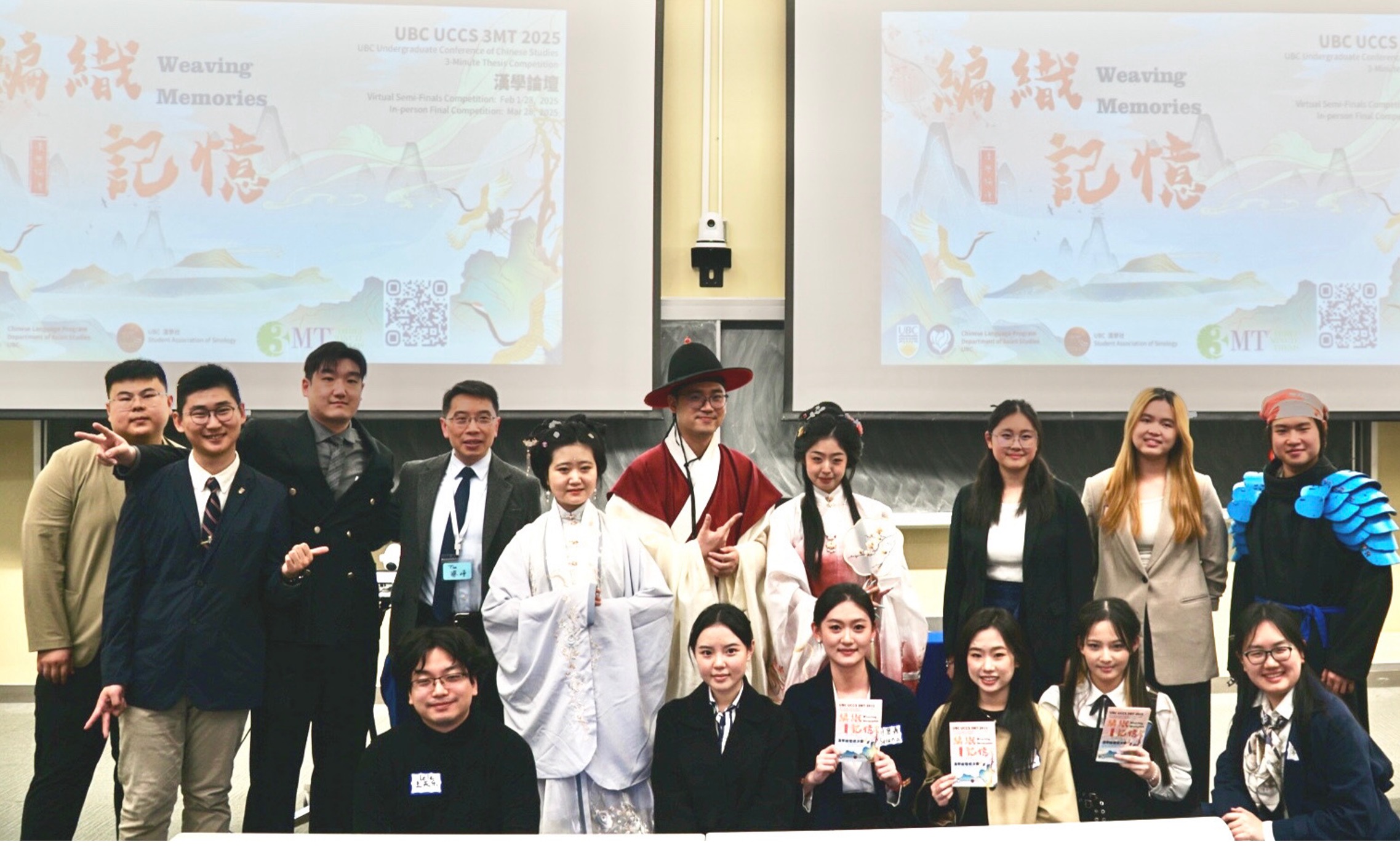Interested in pursuing an MA or PhD in Asian Studies? In this interview series, we ask our graduate students about their research, their experience in our program and their future academic and professional goals. This interview features PhD student Kiran Sunar. Kiran’s research focuses on Punjabi Cultural History and Literature.


Tell us a little about yourself, your background and how you became interested in Asian Studies?
I am a second year PhD Student in the Department of Asian Studies with a focus on South Asian Studies, and more specifically, the region of Punjab, an area that spans across the contemporary borders of India and Pakistan. My research engages the study of gender, sexuality, and the fantastical looking at the multilingual cornucopia of literary traditions in the early modern period (16th to 18th century) and their interactions with each other.
I completed my MA at UBC in English Literature working on South Asian masculinity in South Asian Canadian and British diasporic literature, and my BA (Jt Hons) at McGill University in Religious Studies (with a focus in Asian Religions) and Gender Studies.
I grew up in Vancouver, BC to remarkable parents of Punjabi ancestry who had been raised in Britain; this hybrid sense of belonging left me with a lot of questions about my own histories. I knew so little about where I came from, and I believe that knowing our histories is necessary to knowing who we are. I have always loved to read and so, I began to ask the question of: who is the Shakespeare of Punjab? What about the Punjabi Yeats? Why weren’t South Asian literary traditions as valued as the literatures of the West? If we don’t value these traditions and insist upon them as worthy, they will no longer exist and we will lose rich systems of knowledge, ones that we have much to gain from.
I am also a writer of fiction and poetry; I completed a diploma in Creative Writing at the SFU’s The Writer’s Studio and I have a novel underway entitled Nerve. It is a love story set in our contemporary moment between a young Punjabi woman and an embodied land curse that has followed the woman’s family from India to Mission, BC. My creative work is informed by some of my research questions and vice versa.
Why did you choose the Asian Studies program at UBC? Was there an aspect of the program or location that was particularly attractive to you compared to other programs in Canada or internationally?
Where else can you find a program that is pan-Asian, interdisciplinary but with a breadth of disciplinary focuses, the strongest Punjabi language and literature program in North America, phenomenal representation of South Asian students, and a commitment to North Indian cosmopolitan language education (offering both Sanskrit and Persian!)
The generosity of the Asian Studies faculty is extraordinary. They give their time, energy, and knowledge willingly. I have had incredible guiding conversations with Dr. Adheesh Sathaye and Dr. Sharalyn Orbaugh, rigorous and fun language training from Professor Sukhwant Hundal, Dr. Tom Hunter and Dr. Mozhgan Zolfi, and more recently, amazing pan-Asia training on China with Dr. Christopher Rea and Dr. Alison Bailey. The instructors in Asian Studies are committed to the education of their graduate and undergraduate students, and also their wellness as students and future as well-rounded scholars. This is a style of faculty support that is rare, in my opinion. The pearl lays in UBC’s Asian Studies!
I am grateful to be a guest on Musqueam land. There is a history of Punjabi settlers in BC and it is wonderful to be a part of the city’s growing South Asian population. This allows for incredible classes with many passionate undergraduate students who have great aptitude in South Asian languages. Vancouver is a wonderful place to live. It is a beautiful, diverse, liberal city with the best food and striking natural beauty! UBC is home to phenomenal interdisciplinary, international on-campus graduate residences and I am lucky to call one of them, Green College, my home. With the College offering lectures on a variety of topics, and a diversity of residents including graduate students, postdocs, and visiting scholars, I am a part of a vibrant community of thinkers perched on an edge overlooking the Pacific Ocean with a family of eagles that fly overhead. It really is the dream!
Could you explain to a non-expert what you are researching and why it is important?
My work responds to a contemporary moment rife with islamophobia, homophobia, and gender-based violence by drawing on a past that had different parameters. I examine the relationship between gender, sexuality, and the fantastical in texts that had Hindu and Muslim and Sikh sentiments woven together. Delving back into the early modern, we encounter a completely different world of religious interactions than what we know today. I ask how the fantastical works in early modern South Asian literatures as a site of liberation and a way to contend with violent and difficult pasts. What are the stories people were telling each other 400 years ago? I hope my work will catalyze different understandings of the past and our sense of the present.
As a graduate student, what are your main activities?
At this juncture, I am immersed in my coursework, which includes the study of multiple languages (Persian, Punjabi, and Sanskrit), and a variety of theory and subject courses from mind-stretching seminars on questions of the cosmopolitan and vernacular to a requisite preparatory seminar on professional development created by department faculty where we workshop everything from conference abstracts to course syllabi in preparation for our job market portfolios. I take area courses where we read Punjabi literature, poetry, theatre, and Sikh scripture. Right now, I am also enrolled in this really cool seminar on the figure of the Chinese ghost! Beyond that, I work as a Teaching Assistant and engage in my residential college’s activities (which includes everything from co-convening an interdisciplinary member series to going on ski trips!) I also spend time applying for grants and fellowships, as I believe this is an important muscle to develop in academic life. This summer, I will compile my lists for my comprehensive exams so I have begun to ruminate on that!
What has been the most memorable or impactful moment of your graduate experience?
Most recently, a number of graduate students in the Asian Studies Department planned a vigil at UBC to grieve those lost in the shooting at the Islamic Cultural Centre of Quebec. This was an incredibly moving experience for me to be a part of and share with the wider UBC community.
There are also so many moments over the past two years to choose from: meeting incredible women in a small village in Punjab who are doing inspiring feminist work, reading beautiful 18th century Punjabi texts with other Punjabi students, organizing short film screenings and poetry events.
What are your goals (career or academic) once you’ve completed the program? And how is our program helping you achieve them?
My goal is to attain a professorship at a research institution in North America in South Asian Studies, Religions, or Literature. I want to share these incredible texts, cultural traditions, and histories with students and continue to have illuminating discussions for the rest of my life!
Can you give any advice to new students in our program or for students considering applying to it?
The day I was accepted to the program, I wrote myself a letter capturing how ecstatic I was, as well as a list of the things I would need to remind myself of as I hit bumps in the road. Reminders like: be grateful, embrace teamwork, stay curious, read as much as possible, stay humble, and remember the profound privilege of pursuing a PhD.
It is easy to become overwhelmed during the long stretch or to complain about the inevitable difficulties. Reminding yourself of the larger purpose of your work and being grateful for the opportunity to pursue it will be the lifeblood to staying grounded during the pursuit of a PhD.
More practically, make a five-year plan and follow it, find a supervisor you can trust and trust them, and apply for everything even if you think it is beyond your reach! You can’t win an award you didn’t apply for.
Finally, find intellectual and social kin across fields of study. I have an amazing group of peers who keep me inspired and cheerful. They can see the forest for the trees when I can’t and so we help each other to avoid the hamster wheels of academic stress. We provide feedback on each other’s work, share strategies, and celebrate our successes over delicious meals together.


